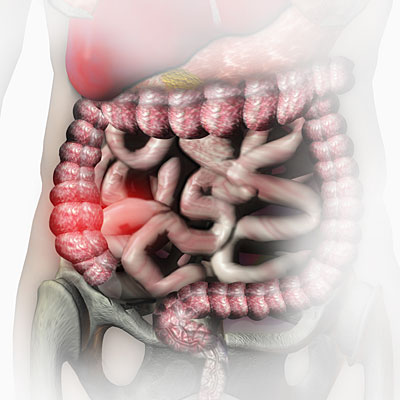
Too much sugarless gum
If you consume too much sorbitol, which is found in some sugar-free products, it can cause pain and diarrhea. According to a 2008 article in BMJ, a 21-year-old woman had an 11-pound weight loss, abdominal pain, and diarrhea (as many as 12 bowel movements a day) from chewing about 16 sticks of gum a day.A 46-year-old man had similar symptoms after chewing about 20 sticks of sugarless gum and eating sorbitol-containing sweets daily.
In both cases, cutting back fixed the problem.

Stress
Stress can cause headaches, high blood pressure, insomnia and, yes, tummy trouble. Depression has been linked with digestive problems (including loss of appetite and weight loss) as well as irritable bowel syndrome. The relationship seems to go both ways, according to a study published in 2012 in the journal Gut.In other words, depression may be causing the stomach aches but constant abdominal pain may just as easily lead to depression and anxiety. (Feeling Stressed? Why You May Feel It in Your Gut)

Food poisoning
Food poisoning from viruses or bacteria can cause abdominal pain, along with diarrhea and vomiting. Many outbreaks of food poisoning have been seen in recent years in the U.S., including 20 people in 7 states who picked up Salmonella from contaminated beef in 2011.In rare cases, food poisoning can be serious or fatal. In general, the symptoms from food poisoning usually last about 1-2 days, says Dr. Alaradi.
However if you have viral gastroenteritis, a stomach bug from food or another person, it may last a bit longer.

Inflammatory bowel disease
Inflammatory bowel disease (IBD) is an inflammation inside the small or large intestine, Dr. Alaradi explains. It includes Crohn’s disease and ulcerative colitis.The inflammation from IBD can cause scarring and blockage, which can lead to abdominal pain along with diarrhea and rectal bleeding. Symptoms are chronic, but can flare up and subside in cycles, making it sometimes hard to diagnose.
IBD needs to be monitored closely as it can lead to more serious problems, even cancer, later in life

Irritable bowel syndrome
Irritable bowel syndrome (IBS) is not the same as inflammatory bowel disease. Although IBS can also lead to chronic abdominal pain and changes in bowel movements (such as alternating constipation and diarrhea), it is not an inflammatory condition and never involves rectal bleeding, says Dr. Alaradi.It generally affects more women than men, is considered less serious than IBD, and can be managed through treatment of symptoms, such as pain relievers.
And unlike IBD, IBS never progresses into more serious conditions such as cancer, says Dr. Alaradi.

Cancer
It’s uncommon, but cancer in any one of the organs located in the abdomen—the liver, pancreas, stomach, gallbladder, or ovaries—can cause stomach pain, but usually only in the later stages, says Dr. Alaradi.And there are usually other symptoms, like a loss of appetite, weight loss, persistent vomiting, persistent bloating of the abdomen, and recent changes in bowel habits. “If a person is used to going to the bathroom once a day and it’s changed in the past few weeks to one every three to four days, that deserves attention,” says Dr. Alaradi.






0 comments:
Post a Comment